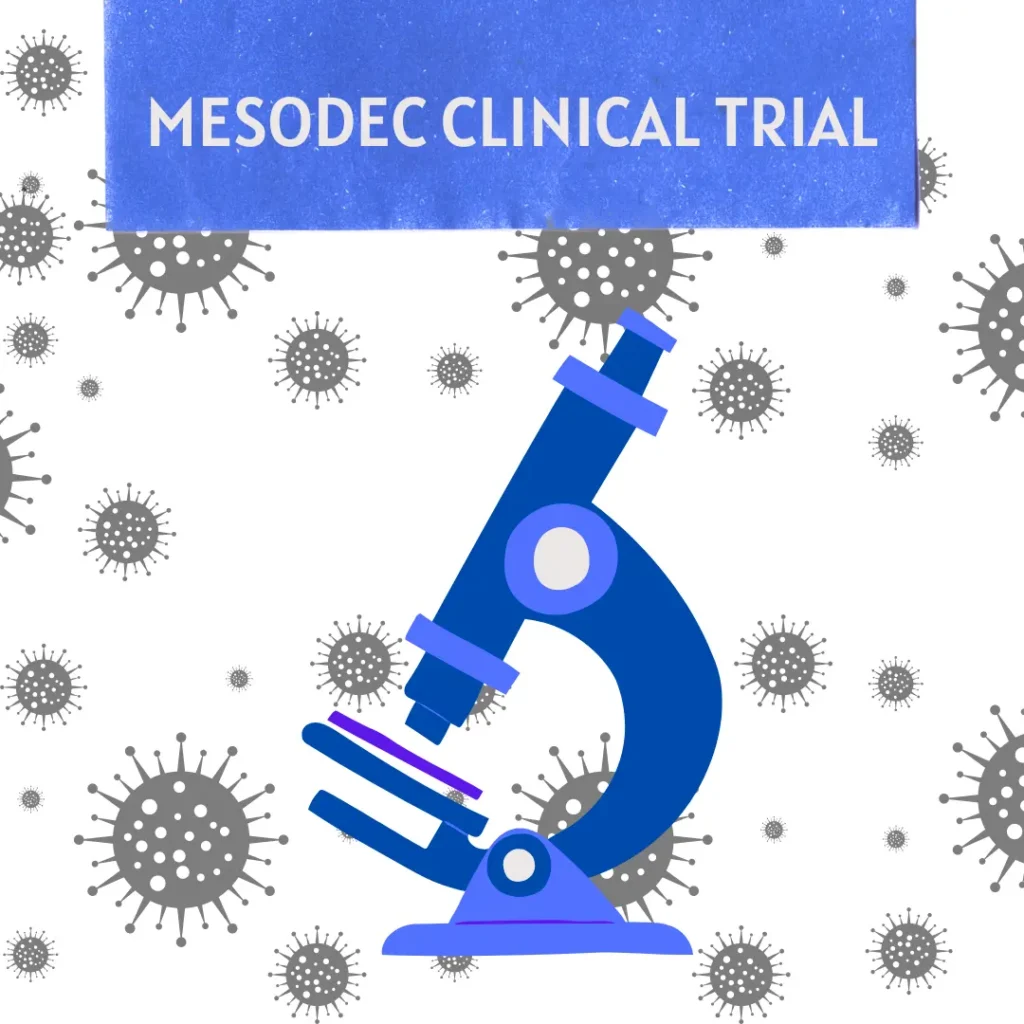Key takeaways: MESODEC is an ongoing mesothelioma clinical clinical trial (currently in Phase II) that is vaccine and chemotherapy-based. By introducing dendritic cells–immune cells that display antigens to
be attacked–to coordinate an immune response against a protein expressed by mesothelioma
cells, researchers are hoping to incite an immune response against mesothelioma. Additionally,
the chemotherapeutic aspect of the trial is likely contributing to a systemic slowing-down of
mesothelioma growth/metastasis. The results of this trial will lay the groundwork for the
conceptualization of new mesothelioma treatments.

What is MESODEC?
MESODEC is a new mesothelioma clinical trial being employed for mesothelioma treatment; the study is set to conclude at the end of 2024.
The expression of Wilms’ tumor gene (WT1) by cancerous cells is strongly associated with a
mesothelioma diagnosis. In a 2014 study, researchers established WT1 as a reputable biomarker
for diagnostic purposes; additionally, they established that the expression of WT1 was associated
with prognostic outcomes. This means that the amount of WT1 expressed by mesothelial cells a.)
can be quantified; and b.) can elucidate patient prognosis.
The MESODEC mesothelioma clinical trial is based on targeting WT1 via vaccine-mediated immunity. Dendritic cells are immune cells that display antigens on their cellular surfaces, which in turn coordinates the immune response. Other immune cells target, attack, and destroy the antigens displayed by
dendritic cells. So, the MESODEC trial employs dendritic cells that have WT1 displayed on their
surfaces as the antigen to be attacked. A characteristic of mesothelioma cells are their ability to
hijack, overrun, and alter the function of healthy immune cells. By restoring normal immune
function, the body begins attacking mesothelioma cells like they’re an antigen to be destroyed.
Another stipulation of the MESODEC trial is its utilization of adjuvant therapies, or therapies
used in conjunction with one another. Along with receiving the immune-facilitating vaccine,
patients in the trial are undergoing platinum and pemetrexed-based chemotherapy. Platinum and
pemetrexed work to interfere with the rapid and unchecked growth of mesothelioma cells by
preventing folic acid–a proliferative growth agent–from binding to cancerous cells. The efficacy
of MESODEC is two-fold: a powerful immune response is incited and mesothelioma cells
experience slowed growth, systemically.
Is MESODEC the Same as Other Vaccine-Based Treatments?
Other vaccine-based clinical trials artificially stimulate the body’s natural immune response(s),
and they’re sometimes coupled with another form of treatment, like chemotherapy or surgery.
However, MESODEC is the first of its kind to “provide the first-in-human experimental
demonstration that the combination of platinum/pemetrexed-based chemotherapy with
WT1-targeted DC vaccination is feasible and safe and enables the induction of both systemic and
in situ mesothelioma-specific immune responses in patients with MPM,” (ClinicalTrials).
Ultimately, this combination of dendritic cells, pemetrexed-based chemotherapy, and targeting
WT1 hasn’t been used cooperatively yet. Because the trial is only in Phase II, reports about
efficacy and utility haven’t been released yet. Despite this, though, it’s promising that the study
has proceeded onto Phase II, is exploring different ways to induce immunity and reduce
unchecked growth, and is interested in boosting patient immunity.
As a plus–like mentioned previously–WT1 expression has been established as a mechanism for
prognosis. If patients undergoing MESODEC trials have reductions in WT1 expression, then it’s
possible that their prognosis could increase, even if their mesothelioma isn’t completely
eradicated. This is another differentiation between MESODEC and other vaccine-based
treatments.
If you or a loved one has been diagnosed with mesothelioma, please call 1 (800)-505-6000 or fill
out our form. We are here to help you navigate the legal process of filing a claim to receive
compensation for your mesothelioma diagnosis. We help mesothelioma victims and their
families in Pennsylvania.
Sources:
https://pubmed.ncbi.nlm.nih.gov/24323466/
https://clinicaltrials.gov/study/NCT02649829
https://tlcr.amegroups.org/article/view/52907/html
https://www.cancer.gov/publications/dictionaries/cancer-terms/def/dendritic-cell